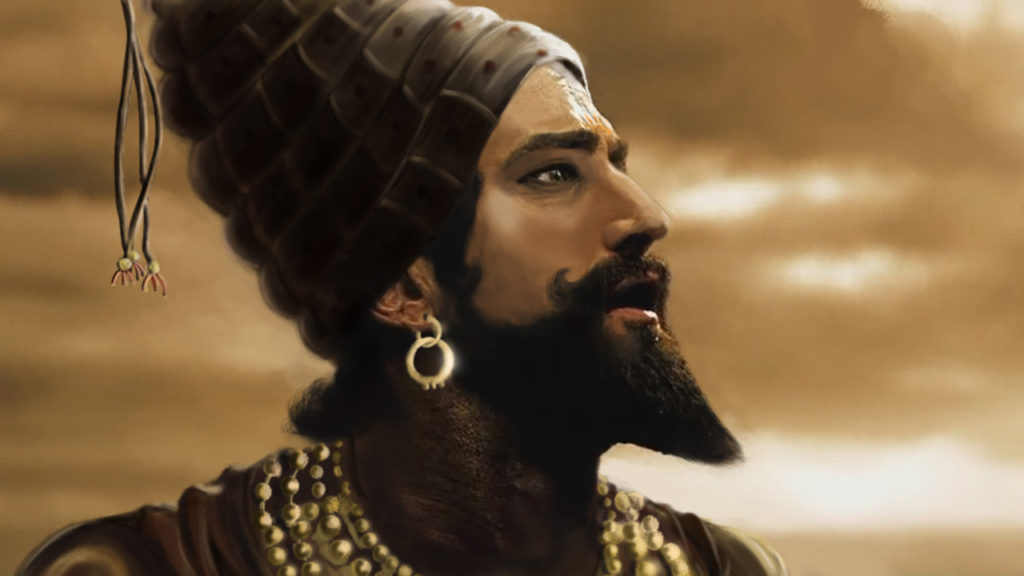Shivaji Bhonsale, better known as Chhatrapati Shivaji Maharaj, was Maharashtra’s, and perhaps entire India’s, most well-known warrior king. Upholding the values of Swarajya, and the heritage of his Maratha background, Shivaji established a royal name for himself in the tombs of history with his administrative and civil prowess.
Born in the prestigious Shivneri fort, and named after the deity Goddess Shivai, Shivaji was born to be a natural leader and fighter. On the occasion of his birth anniversary, here are some facts about him which stand out from his glorious and eventful life.
1. Shivaji was a secular ruler
Shivaji Maharaj maintained peaceful relations with Muslims. This reflected in the fact that in his royal army, about 66,000 from a cavalry of 1,50,000 were Muslims. He was known to be a very religious man and he often sought the company of religious leaders from all castes.
2. Shivaji was known as the father of Indian Navy
Shivaji was the first to realise the importance of having a naval force and in this light, he established a navy and forts at the coastline to defend the Konkan side of Maharashtra. His forts in Jaigad, Vijaydurg, Sindhudurg, and other places stand testimony to this.
3. A staunch supporter of women’s honour
Shivaji strongly opposed any kind of violence or harassment against women. Many believe this might have stemmed for his immense love and respect for his mother, Jijamata. His troopers were sent with strict instructions as to not harm a single woman if they raided villages or other places. The women were always sent back with honour. Anyone from his army caught violating a woman’s rights was severely punished.
4. Escape from the siege of Panhala
When Shivaji Maharaj was entrapped in the Panhala fort by Siddi Jauhar’s army, he devised a plan to escape. He arranged for two palkhis. One had a barber Shiva Nhavi (who looked like Shivaji), and that was made to lead out from the fort. The enemy chased the fake palkhi, which enabled Shivaji to escape the siege with 600 men.
5. A proponent of guerrilla warfare
Shivaji was so well-versed with the geography of his land that he was known to employ Guerrilla tactics (or Ganimi Kava) like raiding, ambushing, and surprise attacks with small groups on his enemies to have a better advantage over them.
6. The defeat of Afzal Khan
Shivaji’s face-off with Afzal Khan is legendary. Shivaji requested a meeting with Afzal Khan at the foot of the Pratapgad Hills to apparently negotiate the terms with Khan’s leader Adilshah. The arrangements were that both would meet with one sword and one follower. Shivaji was sly and he suspected foul play, so he wore body armour under his cloak, and hid a tiger’s claw (Bagh Nakh) in his left sleeve. He knew that there was going to be a battle and was prepared for it. Afzal Khan’s sword couldn’t levy much damage, but Shivaji’s Tiger Claw led to being mortal for Afzal Khan. This was a huge win, considering Shivaji was small and slight in stature, compared to the burly and large Afzal Khan.
7. Established a dedicated army
Before Shivaji, his father and ancestors made use of civilians and farmers who fought for them in the dry seasons and never invested in an army. Shivaji changed that and sought to establish a dedicated army and cavalry and they were paid and trained throughout the year.
8. Escape from Agra
Shivaji was known to be some sort of escape artist. While at Aurangzeb’s court, Shivaji was placed under house arrest, later to be sent either to be killed or to fight at the Afghan frontier. Shivaji managed to convince the authorities to send out regular boxes of sweets and fruits from the fort as charity to the temples of Agra. He managed to escape in one of the boxes with his son Sambhaji in another and managed to flee to the Deccan after that, disguised as sadhus.
9. Merciful monarch
Above all, Shivaji was known as the Jaanta Raja, or the Knowing King. He was a benevolent ruler and was known to show mercy to his opponents who chose to surrender to him and also offered them a place in his army to fight for him.
Above all, Chhatrapati Shivaji Maharaj was known to be in the interest of the nation, rather than his own personal rule, and encouraged every single person in his kingdom to fight for or contribute to India rather than him.
